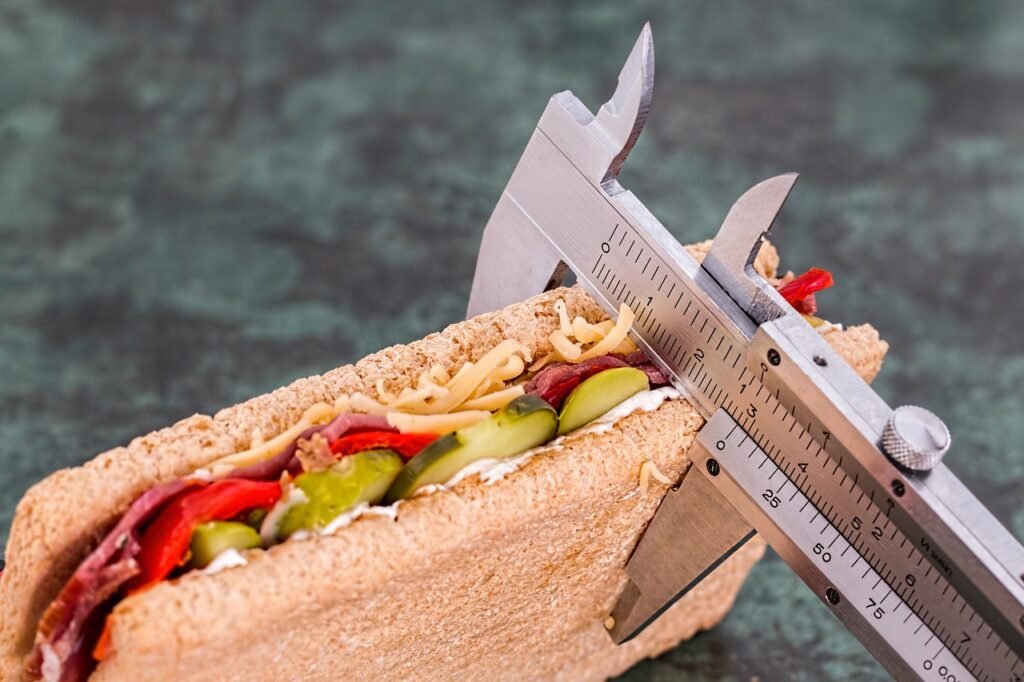
Table of Contents
Introduction
In a world where time is our most precious currency, a revolutionary approach to health and wellness has emerged: Intermittent Fasting (IF). Imagine harnessing the power of ancient wisdom, backed by modern science, to optimize your well-being. Buckle up, because we’re about to embark on a journey that transcends mere dieting—it’s a lifestyle shift that could transform your health.
What Is Intermittent Fasting?
Intermittent fasting isn’t just another diet fad; it’s a rhythmic dance between nourishment and rest. Picture this: you cycle between periods of eating and fasting. But don’t worry—I’m not suggesting you starve yourself. Instead, IF invites you to redefine your relationship with food, tapping into your body’s innate intelligence.
Why Intermittent Fasting Matters
1. Changes at the Cellular Level
When you embrace intermittent fasting, your body orchestrates a symphony of transformations:
- Insulin Levels: Insulin—the gatekeeper of fat storage—takes a backseat, promoting fat burning.
- Human Growth Hormone (HGH): This superhero hormone skyrockets during fasting, enhancing fat metabolism, muscle gain, and overall vitality.
- Cellular Repair: Imagine tiny repair crews tidying up your cells, discarding waste, and rejuvenating your body.
- Gene Expression: Benevolent changes ripple through your genes, promoting longevity and disease resistance.
2. Weight Loss and Visceral Fat Reduction
IF isn’t just about skipping meals; it’s about recalibrating your metabolism. By eating fewer meals, you naturally consume fewer calories. Plus, your body becomes a fat-burning furnace:
- Lower Insulin: Say goodbye to stubborn fat.
- Higher HGH: Hello, lean muscle.
- Increased Norepinephrine: Your body taps into fat stores for energy.
In a recent study, participants practicing the 5:2 intermittent fasting plan shed 9% of their body weight—more than other weight loss methods1. But wait, there’s more!
3. Beyond the Scale
Intermittent fasting isn’t just about fitting into those jeans; it’s about longevity, brain health, and disease prevention. Research hints at its potential to:
- Alleviate Cancer Risk
- Regulate Blood Sugar
- Boost Brain Function
Ready to Dive In?
Whether you’re a curious beginner or a seasoned faster, this guide will equip you with practical tips, meal ideas, and myth-busting insights. Buckle up, my friend—your health journey is about to accelerate.
Types of Intermittent Fasting
1. Time-Restricted Intermittent Fasting (16:8 or 14:10)
- What is it? You limit your eating window to a specific time frame (e.g., 8 hours) and fast for the remaining hours.
- How it works: During the eating window, consume balanced meals. Outside that window, stick to water, herbal teas, or black coffee.
- Benefits: Improved insulin sensitivity, weight management, and potential longevity boost.
2. Alternate Day Intermittent Fasting (4:3 or 36:12)
- What is it? You alternate between regular eating days and fasting days.
- How it works: On fasting days, consume minimal calories (usually less than 500).
- Benefits: Weight loss, potential metabolic benefits, and autophagy (cellular repair).
3. Overnight Intermittent Fasting (12:12)
- What is it? You fast for 12 hours overnight (e.g., from dinner to breakfast).
- How it works: Allow your body to rest and repair during the fasting period.
- Benefits: Simplicity, improved digestion, and potential fat loss.
4. Warrior Diet Intermittent Fasting (20:4)
- What is it? You fast for 20 hours and have a 4-hour eating window.
- How it works: Consume one large meal during the eating window.
- Benefits: Fat loss, mental clarity, and cellular rejuvenation.
5. One Meal a Day Intermittent Fasting (23:1)
- What is it? You eat only one substantial meal within a 1-hour window.
- How it works: Focus on nutrient-dense foods during that meal.
- Benefits: Streamlined eating, potential weight loss, and autophagy.
Ready to Choose Your Fasting Path?
Explore these methods, find what aligns with your lifestyle, and embark on your health journey. Remember, consistency and mindful eating matter most.
Also read about eating right for preventing illness.
Health Benefits of Intermittent Fasting

Weight Loss and Fat Reduction:
- IF naturally reduces calorie intake by limiting eating windows.
- Lower insulin levels promote fat burning.
- Increased norepinephrine taps into fat stores for energy.
Improved Insulin Sensitivity:
- IF helps regulate blood sugar levels.
- Cells become more responsive to insulin.
Cellular Repair and Longevity:
- Autophagy—a cellular cleanup process—increases during fasting.
- Genes associated with longevity may be positively influenced.
Brain Health and Mental Clarity:
- IF supports brain function and cognitive performance.
- Enhanced focus and clarity during fasting periods.
Heart Health and Reduced Inflammation:
- Potential reduction in risk factors like cholesterol and blood pressure.
- Lower inflammation markers.
Metabolic Benefits:
- Improved fat metabolism and weight management.
- Potential protection against chronic diseases.
Remember, consult a healthcare professional before starting any fasting regimen. 🌟🍽️
There’s no superfood. Read where we bust this superfood myth.
How to get started?

Choose Your Fasting Window:
- Decide on the duration of your fasting period. Common options include 16:8 (16 hours fasting, 8 hours eating) or 14:10.
- Align it with your daily routine—for example, skipping breakfast and having an early dinner.
Gradual Transition:
- Ease into IF. Start by extending your overnight fast by an hour or two.
- Listen to your body—some people adapt quickly, while others need more time.
Stay Hydrated:
- During fasting hours, focus on water, herbal teas, or black coffee.
- Proper hydration is crucial for overall health.
Mindful Eating:
- When it’s time to eat, choose nutrient-dense foods.
- Prioritize whole grains, lean proteins, fruits, and veggies.
Track Your Progress:
- Use a journal or app to monitor your fasting hours and meals.
- Celebrate small victories!
Consult a Professional:
- Before diving in, talk to a healthcare provider or a registered dietitian.
- Ensure IF aligns with your health goals and any existing conditions.
Remember, consistency matters more than perfection. Happy fasting! 🌟🕰️
Myths and Misconceptions
Let’s debunk some common myths and misconceptions surrounding Intermittent Fasting (IF). Knowledge is power, and separating fact from fiction will empower your health journey:
Myth: “Fasting Puts You in Starvation Mode”
- Reality: Fasting isn’t starvation. Starvation mode occurs only after prolonged extreme calorie restriction. During IF, your body taps into fat stores for energy, promoting weight loss.
Myth: “You Must Skip Breakfast”
- Reality: Not necessarily! IF allows flexibility. If breakfast suits your routine, go for it. The key is the fasting window, not specific meal timings.
Myth: “Fasting Slows Your Metabolism”
- Reality: Short-term fasting doesn’t harm metabolism. In fact, it may boost fat metabolism and improve insulin sensitivity.
Myth: “You Can Eat Anything During Eating Windows”
- Reality: Quality matters. Opt for nutrient-dense foods—whole grains, lean proteins, fruits, and veggies—instead of junk food.
Myth: “Fasting Is Only for Weight Loss”
- Reality: While weight loss is common, IF offers broader benefits: brain health, longevity, and disease prevention.
Myth: “Fasting Is Unsafe”
- Reality: IF is safe for most healthy individuals. Consult a professional if you have medical conditions.
Remember, myths can cloud our understanding. Stay informed and embrace IF mindfully!
Safety and Precautions
While IF offers numerous benefits, it’s essential to approach it mindfully:
Consult a Healthcare Professional:
- Before starting any fasting regimen, talk to your doctor or a registered dietitian.
- Ensure IF aligns with your health goals and any existing conditions.
Avoid Extreme Caloric Restriction:
- IF isn’t about starving yourself. It’s about timing your meals.
- Don’t drastically reduce calories during eating windows.
Stay Hydrated:
- Proper hydration is crucial. Drink water, herbal teas, or black coffee during fasting hours.
- Dehydration can lead to fatigue and other health issues.
Listen to Your Body:
- Pay attention to hunger cues. If you feel unwell, adjust your fasting window.
- Don’t push yourself too hard.
Be Mindful of Nutrient Intake:
- When you eat, focus on nutrient-dense foods.
- Avoid overindulging in processed or unhealthy options.
Avoid IF During Pregnancy and Breastfeeding:
- Pregnant individuals and nursing mothers should not practice IF.
- Consult your healthcare provider for personalized advice.
Remember, your well-being matters above all. Happy fasting!
Meal Ideas and Recipes
Let’s explore some delicious meal ideas and recipes for your Intermittent Fasting (IF) journey. These options are both nutritious and satisfying:
Breakfast (During Eating Window):
- Avocado and Egg: Slice an avocado, remove the pit, and scoop out a bit of flesh. Crack an egg into the hollow, sprinkle with salt and pepper, and bake until the egg sets.
- Greek Yogurt Parfait: Layer Greek yogurt with berries, nuts, and a drizzle of honey. Top with granola for crunch.
Lunch:
- Grilled Chicken Salad: Toss grilled chicken breast with mixed greens, cherry tomatoes, cucumber, and feta cheese. Dress with olive oil and lemon juice.
- Quinoa Bowl: Cook quinoa and mix with roasted veggies (like bell peppers, zucchini, and sweet potatoes). Add a dollop of hummus or tahini.
Dinner:
- Salmon and Asparagus: Roast salmon fillet with lemon slices and asparagus. Serve with a side of quinoa or brown rice.
- Stuffed Bell Peppers: Fill bell peppers with a mixture of ground turkey, black beans, quinoa, and diced tomatoes. Bake until tender.
Snacks (During Eating Window):
- Almonds or Walnuts: A handful of nuts provides healthy fats and protein.
- Apple Slices with Nut Butter: Dip apple slices in almond or peanut butter.
Remember, portion control matters. Enjoy these meals mindfully! 🌟🍽️
Frequently Asked Questions (FAQs) about Intermittent Fasting (IF)
Q: Can I drink coffee during fasting hours?
- A: Yes, black coffee (without sugar or cream) is generally allowed during fasting. It can help curb hunger and boost alertness.
Q: What about supplements during fasting?
- A: Most supplements won’t break your fast. However, consult a healthcare professional for personalized advice.
Q: Does fasting affect exercise performance?
- A: Light to moderate exercise during fasting is usually fine. Stay hydrated and listen to your body.
Q: Is fasting suitable for everyone?
- A: Not always. Pregnant individuals, nursing mothers, and those with certain medical conditions should avoid IF. Consult your doctor.
Q: How do I break my fast?
- A: Start with a balanced meal—protein, healthy fats, and veggies. Avoid overeating.
Conclusion: Your Fasting Odyssey
As you’ve navigated these pages, you’ve glimpsed the rhythm of fasting—the ebb and flow that dances between nourishment and restraint. But remember, this isn’t a mere diet; it’s a symphony of health, conducted by your body’s wisdom.
Embrace the Pause:
- When hunger knocks, pause. Listen. It’s not an enemy; it’s a messenger.
- Your cells whisper secrets during fasting hours—autophagy, repair, rejuvenation.
Mindful Beginnings:
- Choose your fasting window like an artist selecting colors for a canvas.
- Gradually extend your fast, like a sunrise stretching across the horizon.
Nutrition as Poetry:
- When you break your fast, let it be a sonnet—a balanced meal that sings of protein, fiber, and vibrant hues.
- Avoid the cacophony of processed foods; instead, savor the symphony of whole grains, leafy greens, and berries.
Myths Unraveled:
- Starvation mode? No, you’re not stranded on a deserted island.
- Breakfast? It’s a choice, not a commandment etched in stone.
Safety Anchors:
- Consult your healthcare guide—a compass for your fasting voyage.
- Hydrate like a sailor navigating uncharted waters.
Your Health Odyssey Awaits:
- Weight loss, brain clarity, heart health—they’re all constellations in your sky.
- As you sail through fasting windows, may your vessel be curiosity, your compass science, and your harbor well-being.


Thanks for sharing. I read many of your blog posts, cool, your blog is very good.